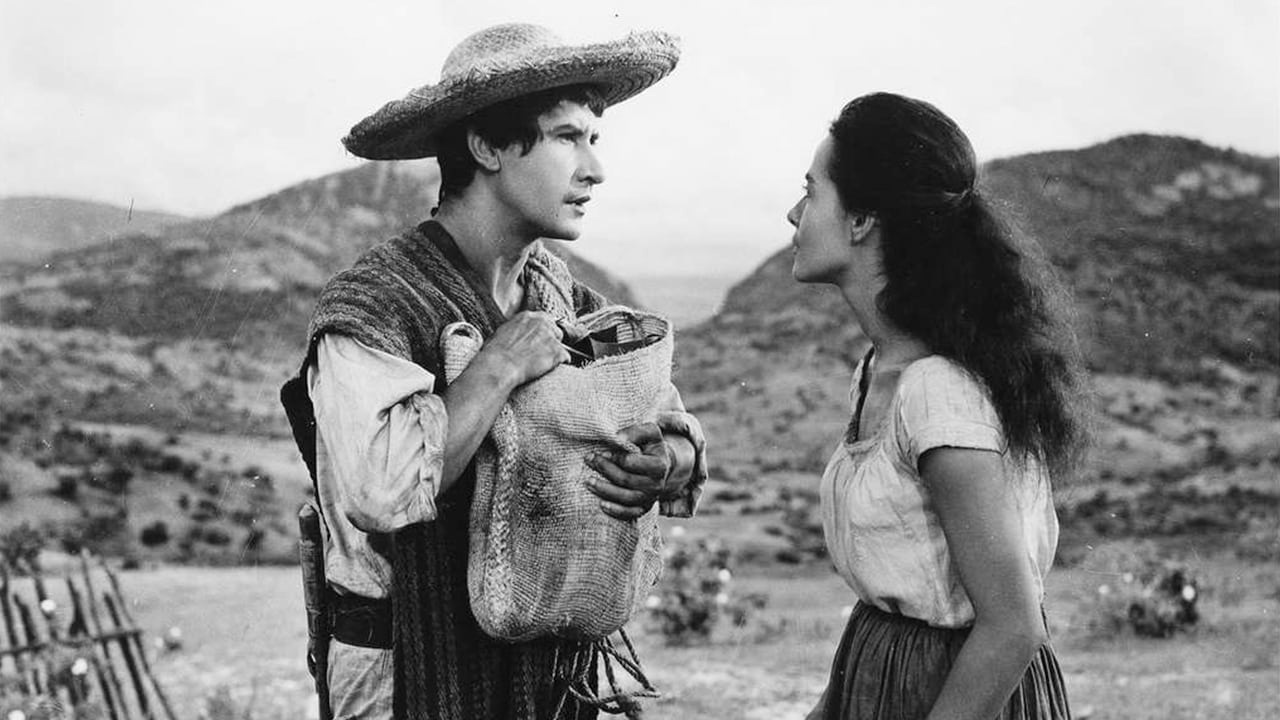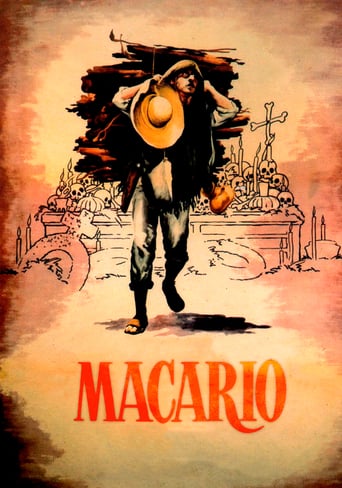

Absolutely Fantastic
... View MoreThe film makes a home in your brain and the only cure is to see it again.
... View MoreThis is a dark and sometimes deeply uncomfortable drama
... View MoreThe acting in this movie is really good.
... View MoreWriter B. Traven's, cinematographer Gabriel Figueroa's and film-director Roberto Gavaldón's 1960 masterpiece 'Macario' appears at first to be a wonder tail for children, a little fantasy - filled with marvelousness. But then, its poetry (albeit it never resigns from its esthetic) turns into a tragic dejection, and soon you realize that you are in the impossibility to step back. Life has trapped you, nobody looks out for you - death enters you when you're born, and you carry it around in your livers, your stomachs, your hearts. Each candle goes out by itself. 'Macario's daring and ruthless realism hits you sharply, suddenly - as with its first spoken dialogs and captivating scenes. All illusions, romances, sentimentalisms, understandings drop unexpectedly from your entrails and your skull... and surprisingly long time before your death.
... View MoreOne of the finest Mexican films I have ever seen. The casting is excellent as each character is perfect for the role chosen. The film will leave you feeling that justice eventually does prevail. I am pleased that Ignacio Lopez Tarso is still with us and still acting. It is a real shame that the actress playing his wife left us so soon. The wife's love for her husband is so evident in the film as she is totally unselfish. The actor playing death is superb and will never leave you. I wish I could find the names of the actors that played the members of the Court because I believe they may be from Spain and I would like to look up their other credits. I highly suggest for you to see this film!!!!
... View MoreSpoilers --see this great film first.This film will make you feel ashamed for ever being discontented with your job --which to a certainty is better than poor Macario's, which is bringing sticks of wood he has cleared from the forest to a local baker for a few cents a day. His children, of which there are many, are always hungry. --As is he. Therein hangs the tale. After going to the baker during the Day of the Dead festivities, and seeing turkeys baking in his great ovens, Macario vows never to eat again, until he can have a whole turkey to himself, and eat until he has no trace of hunger left. He proclaims that had he such a meal, he would not share with anyone, not even his children. --Is it for this un-Christ-like desire, understandable as it is, that Macario pays during the unwinding of this scenario? I do not know. But the specters of injustice and death and human want and misery hang over this film like the thick aroma of cooking food. A candlemaker, especially busy during the Day of the Dead, tells Macario he should buy candles for the dead to show respect and pity, because, as he puts it, "We spend a lot more time dead than alive." That is perhaps the signal line of dialogue in this sad, thought- provoking film. Ten stars. See it.
... View MoreI know that Mexican cinema has suffered greatly from repulsive movie makers. Macario is probably "THE" Mexican film that will define the country's cinema at its best.Macario is a beautiful classic Mexican film about the tale of a poverty stricken woodcutter. Taking place when Mexico was still under Spanish rule (For the ignorant reader "a person from Spain!") and racism between Spaniards and Mexicans took place. The Spaniards are the holders of the moneymaking businesses, while the Mexicans do the work of the poor.A woodcutter by the name of Macario becomes frustrated of seeing rich people getting richer and the poor getting poorer. Macario becomes sick of being hungry all the time. He becomes determined to become rich to make himself and family happier. One day his wife steals a chicken for her husband Macario. He kindly accepts and takes it to the wilderness to eat by himself.On the way he encounters the devil dressed as a Mexican gunslinger. The devil asks Macario to share the chicken with him and in return, he will give all the land to Macario. Macario refuses and replies by saying "This is not your land, how can you give me something that is not yours". Macario continues deeper into the wilderness in hopes to eat his chicken in peace. He then comes across God disguised as a shepherd. God asks, "Could you please give me a small morsel of that chicken?" Macario replies "My lord, you do not need my chicken". Macario finally hides in a cave where he comes across another man who too asks for some chicken. Macario sees that the man has not eaten because he is so bony, so Macario kindly shares the chicken. As the two men finish the chicken, Macario notices that he has shared the wealth with "Death". Death is grateful and gives him a gift; a canteen filled with water that will cure any illness.This is one of the most symbolic movies I have ever witnessed. Not realizing that Mexicans could to great movies they have proved themselves greatly with this magnificent tale of religion, poverty, and wealth. One of the most memorable scenes is the valley of candles. Strong character development and the depressive themes makes this a tale that is not intended for the weak of heart. A true masterpiece for those who love tales of deals between good and the dark side of life. See this film in its Castilian tongue (for the ignorant reader "the official and literary language of Spain based on this dialect").
... View More